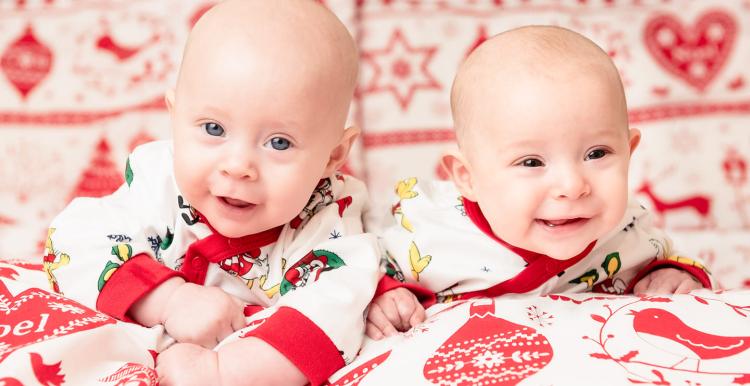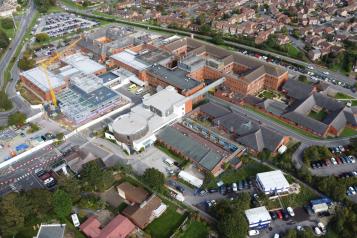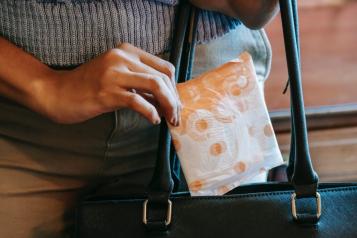Born and Bred in Doncaster (BaBi-D) research programme signs up 500 participants in just six months

Led by Doncaster and Bassetlaw Teaching Hospitals (DBTH), and delivered in partnership between local health organisations, the Born and Bred in Doncaster (BaBi-D) research programme is a birth cohort data collection study. The project links information from both the participant’s patient records and their child’s patient record, to build up a much clearer picture of people’s lives and answer questions that aim to improve healthcare services.
The Research Team at DBTH expected to recruit approximately 10 per cent of the expectant mothers to the study within the first year. This target was set against 2021 birth rate figures and was equivalent to 308 participants. However, the number of participants consenting to take part in the study have exceeded this target, reaching 500 recruits in the first six months of the project.
Prospective participants are asked to join when they see their midwife, who are asked for their consent to become part of the study. If consent is given, health researchers join together lots of data about the participant and their child so that health organisations can look at ways to improve healthcare services through research and planning in the local area and beyond.
Data obtained through the study can help local health organisations explore topics around health inequalities and determine measures to address these areas of concern, such as whether there are relationships between things that happen in pregnancy and children’s future health, if children in some areas are more likely to get asthma than children in other areas, and how our genes affect our health and lives as we grow up.
Speaking about the success of the project, Lois Mellor, Principal Investigator for the BaBi-D study and Director of Midwifery at DBTH, said: “As a partnership approach, the BaBi-D project is fortunate to be facilitated by a diverse range of health and social care professionals, each bringing their expertise to ensure that this project is successful. This is an ambitious and long term project that will capture data from birth through to adulthood, to help inform what health inequalities people in the area have and how we work to reduce these.
“There has been real positivity towards the project from our community and we are proud to see that people appreciate the difference we are trying to make by hosting research programmes such as BaBi-D in the Doncaster area. The success of BaBi-D is only possible thanks to the generosity of women and babies who joined the BaBi family and the enthusiasm and dedication of the midwives who invited them. We are grateful to all the women, babies, health professionals and researchers who make BaBi-D happen.
Sam Debbage, Director of Education and Research at DBTH, said: “We want to ensure this research study reflects the requirements and concerns of the local area. Therefore, we are keen to hear from our community and welcome your thoughts on any research topics you would like the programme to explore. Please do not hesitate to get in touch with the team to give your suggestions.”
Taking part in BaBi-D is voluntary and participants are free to withdraw at any time. This research, like every research project undertaken, is checked to make sure it meets the highest scientific and ethical standards. You can find out more about the study, or provide the team with your research ideas, on the dedicated Born and Bred in Doncaster website: www.dbth.nhs.uk/babi-d
The BaBi-D project is a partnership with health and social care providers and wider partners in the area; Doncaster and Bassetlaw Teaching Hospitals (DBTH), Rotherham Doncaster and South Humber NHS Foundation Trust (RDaSH), Doncaster Council, Primary Care Doncaster, and supported by the research departments at The University of Sheffield and Sheffield Hallam University.
BaBi-D is part of the BaBi network; a group of local birth cohort studies that work together to link routine data with the aim to improve the health and wellbeing of families through research.
The Born and Bred In (BaBi) network is part of the Born in Bradford family and is supported by the National Institute for Health Research Yorkshire and Humber ARC (NIHR YHARC). As of 5 December 2022, the BaBi network has successfully recruited 14,439 participants.
To find out more please visit: https://www.babinetwork.co.uk/babi-sites/babi-bradford


